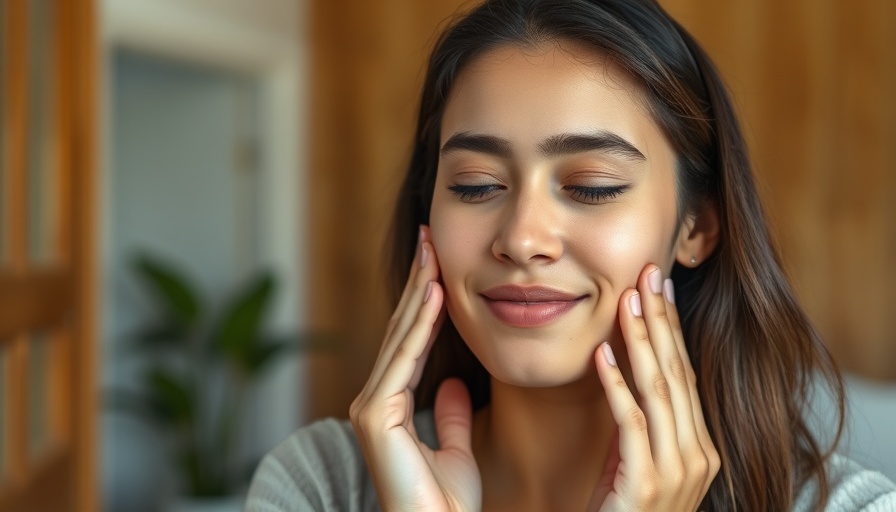
Understanding Your Skin's Signals
Your skin is more than just a protective barrier; it's a complex organ that communicates vital information about your overall health. Many people don't realize that changes in your skin can be an indication of underlying issues, not just related to beauty products. From flakiness to irritation in sensitive areas like the eyes, it's crucial to pay attention to these subtle signs.
The Eyes: A Window to Skin Irritation
Did you know your eyes could reveal so much about the health of your skin? The skin around the eyes is particularly thin and sensitive, making it more susceptible to reactions. When using new products, any signs of irritation—such as redness, puffiness, or allergic reactions—can often first manifest around the eye area. Dr. Joshua Zeichner, a dermatologist, explains that individuals with sensitive skin should prioritize the use of hypoallergenic beauty products, especially around the eyes where reactions are more likely.
The Connection Between Diet and Skin Health
Your eating habits can significantly affect your skin's appearance. Foods high in salt and sugar can lead to puffiness and dark circles, while a diet rich in antioxidants and healthy fats can contribute to a more glowing complexion. Keeping your skin healthy is about more than products—proper nutrition plays a critical role. For instance, managing high blood sugar levels through what you eat can also minimize the risk of skin irritations.
Recognizing Irritation vs. Natural Responses
As consumers, deciphering what products are causing irritation can feel like a daunting task. Is your skin just reacting to the weather, or is it something more? Understanding the difference is key. Keeping a diary of new products introduced can help you identify possible culprits, especially when combined with notes on your diet and overall health. Remember, your skin's reactions can sometimes take days to manifest, so patience is vital.
Common Misconceptions to Clarify
There are many myths surrounding the cause of skin irritation. Some believe that using more products equates to better skin care, but this can often lead to over-irritation. A minimalistic approach to skin care—choosing quality over quantity—can help your skin thrive while keeping irritations at bay. Additionally, many people overlook the importance of patch testing new products before fully integrating them into their routines.
Actionable Tips for Healthy Skin
1. **Hydrate**: Drink plenty of water to keep your skin hydrated from within, especially if you’re monitoring your blood sugar levels. Staying hydrated can help you achieve that youthful glow.
2. **Diet Choices**: Incorporate more fruits, vegetables, and whole grains into your meals while reducing processed foods. Foods rich in omega-3 fatty acids, like salmon and walnuts, can have anti-inflammatory benefits that help your skin.
3. **Seek Professional Advice**: Consult with a dermatologist if you notice persistent irritation. They can help you identify whether your skincare routine, lifestyle choices, or underlying health conditions like diabetes might be contributing to your skin issues.
Future Predictions for Skincare
The future of skincare is heading toward personalized formulations that adjust based on individual skin types, needs, and even diet. As technology advances, we might see tools that analyze your skin's health directly, providing tailored recommendations that cater to your unique profile. Consider this an exciting time where understanding your skin can lead to groundbreaking opportunities for self-care.
Final Thoughts
The complex relationship between diet, beauty products, and skin health shouldn't be underestimated. By understanding the signs your skin is telling you—and how they relate to your overall health—you can make informed choices that benefit both your skin and your wellbeing. Take the time to listen to your body and make adjustments where necessary.
If you're looking to optimize your health through diet while considering skin health, explore options like intermittent fasting or examining your keto diet for potential irritants. Small changes can yield significant results in not just your skin, but overall health.
Remember to prioritize skincare that aligns with both your beauty goals and your health needs!
 Add Row
Add Row  Add
Add 



 Add Row
Add Row  Add
Add 


Write A Comment